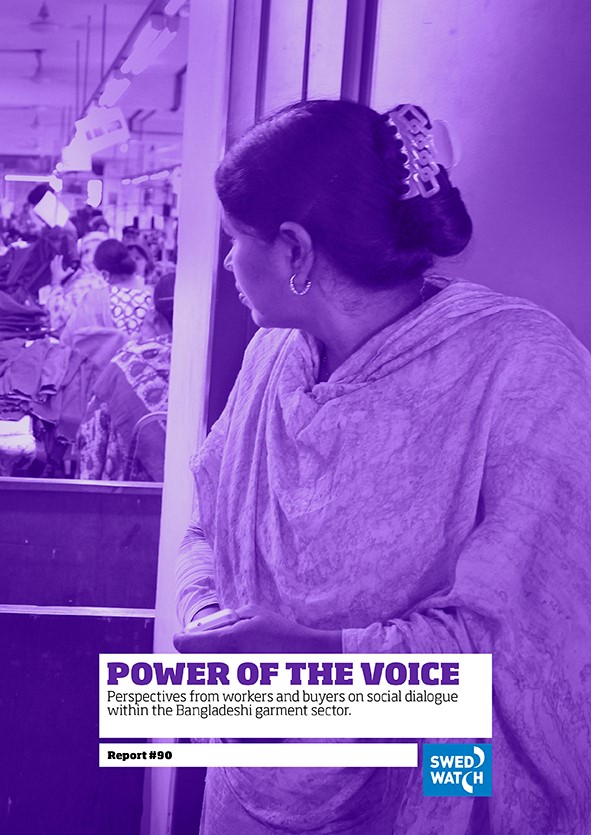2018-05-31
Companies need to do more for Bangladesh’s garment workers
Despite years of efforts to strengthen the voices of workers in the Bangladeshi garment sector through social dialogue, real improvements remain to be seen. Those who want to join or form unions risk threats and harassment and the chances of negotiating for better terms are limited. Swedish buyers claim to address the challenges, yet few of their suppliers have trade unions or collective bargaining agreements in place.
Bangladesh is the second-largest garment and apparel exporting country in the world, attracting numerous multinational companies with low production costs. However, this has come with a high price for millions of workers, most of them women, who are employed in the Bangladeshi garment industry where low wages, extensive overtime and hazardous work environments are all common features.
After the deadly collapse of the Rana Plaza factory in 2013, several initiatives were launched to improve workplace safety and the so-called social dialogue between garment employers, workers and the Bangladeshi government. However, in an index compiled by global trade union ITUC, Bangladesh still ranks as one of the worst countries to work in due to workers’ limited chances to negotiate their terms of employment. Also, those who want to join or form unions risk repercussions from factory owners including harassment, abuse and even killings.
In a new report, Swedwatch explores the state of social dialogue five years after Rana Plaza through a survey with 15 Swedish clothing and home textile companies sourcing from Bangladesh. The report aims to provide a basis for discussion on the responsibilities of companies active in markets where the human rights to freedom of association and to collective bargaining are systematically infringed upon.
The survey shows that the companies in the study claim to address these risks through auditing, capacity-building and through building long-term relationships with suppliers. Many also state that they have experienced an increased knowledge regarding labour rights among their suppliers during recent years. However, many still perceive that there is widespread scepticism towards trade unions among suppliers and there are few trade unions and collective bargaining agreements in place.
In the absence of trade unions, the survey shows that most of the buyers have instead relied on factory-level worker participation committees, legally required by the Bangladeshi government. However, these committees are often controlled by factory management and they do not give the workers the legal mandate to bargain collectively.
Companies sourcing from Bangladesh, as well as local suppliers, have a responsibility to ensure that their business operations do not have negative impacts on human rights. The report encourages companies to investigate if their suppliers have anti-union policies and practices, and if so, to take appropriate measures to prevent this. The report also recommends that companies improve the situation for workers through more sustainable purchasing practices, such as economic incentives for suppliers with collective bargaining agreements.
The report, Power of the Voice, has been conducted in cooperation with Fair Action.
The companies included in the survey have been offered to comment on the report and its findings.




